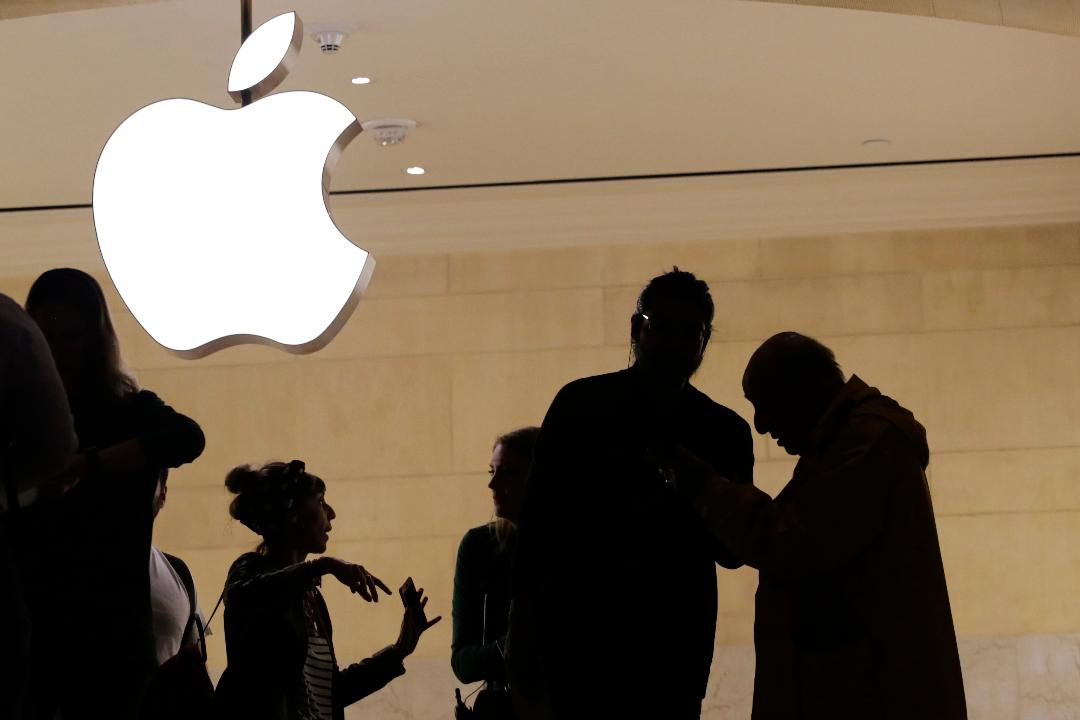Apple to weigh diversity proposal from conservatives against its wishes
Apple’s annual investor day on Friday will include one agenda item the consumer technology giant fought to prevent: a vote on a conservative proposal to require the board of directors to release ideological information on nominees.
The Cupertino, California-based company pushed the Securities and Exchange Commission to drop the recommendation backed by conservative activist Justin Danhof of the National Center for Public Policy Research on the grounds that shareholders would not understand it.
“The range of matters that may or may not be encompassed within the phrase ‘ideological perspectives’ is not something that is commonly understood or well-defined,” Apple wrote in a 2018 letter to the agency.
The SEC ruled against the company, stating in a December 2018 correspondence that the proposal as a whole is not “so vague or indefinite that it is rendered materially misleading.”
Apple, which is advising investors to vote against the measure, did not respond to Fox Business’ request for comment.
“The skills, qualities, attributes, and experience that the board evaluates when considering a potential nominee do not include ‘ideological perspectives,’” the company wrote in its proxy statement, adding that it is not “relevant to the board’s oversight role or the nominee’s ability to serve as an effective director.”
The saga is the latest example of outside groups from both sides of the political spectrum employing the often-arcane proxy process to push corporate America to embrace more ideologically aligned policies – and the steps that companies are willing to take to try to prevent them.
Any investor with at least $2,000 in stock is allowed to submit a recommendation for consideration at yearly shareholder meetings. And while the subsequent votes are non-binding, any submission that garners a majority vote is often implemented by the firm’s board of directors.
Opponents – which include powerful interest groups like the U.S. Chamber of Commerce – argue the proposals often veer too far from the purview of the board and into the daily management of a company. Supporters, however, say that it gives investors of all stripes a voice in the direction of a firm.
The SEC is considering action on the issue and, among other things, could move to increase the amount of stock an investor must hold to submit a proposal.
| Ticker | Security | Last | Change | Change % |
|---|---|---|---|---|
| AAPL | APPLE INC. | 274.62 | -3.24 | -1.17% |
| CVS | CVS HEALTH CORP. | 75.77 | -2.58 | -3.29% |
| WMT | WALMART INC. | 129.02 | -2.16 | -1.65% |
| PEP | PEPSICO INC. | 166.47 | -4.02 | -2.36% |
| GPS | NO DATA AVAILABLE | - | - | - |
| SBUX | STARBUCKS CORP. | 98.98 | -0.47 | -0.47% |
As more activists succeed in their endeavors, companies are intensifying their behind-the-scenes outreach in an effort to prevent a potentially embarrassing public vote on the recommendations.
Walmart, PepsiCo, CVS Health and Gap all adopted a form of Danhof’s board diversity proposal in exchange for the group withdrawing the request. Starbucks will vote on the measure at its annual meeting in March and Danhof is in negotiations with other companies to try to prevent the proposal from advancing, he told Fox Business.
Liberal activists have for years pushed top U.S. businesses to analyze the impact of operations on the environment and disclose political spending, among other proposals.
A group of nuns, for example, were successful in getting Smith & Wesson parent company American Outdoor Brands to issue a report on the steps it is taking to ensure its firearms are safe. In the resulting research made public in February, the Springfield, Massachusetts-based firm said it is more focused on shoring up its reputation among existing gun owners.
CLICK HERE TO GET THE FOX BUSINESS APP
Among the other proposals, Apple is slated to vote on is a BlackRock-backed measure to increase the number of directors that shareholders are permitted to nominate. Currently, Apple limits investors to one nominee.
“Any shareholder nominee elected under the current bylaws at Apple could be easily isolated and ineffective. They might not even be able to get a second on a motion in a board meeting to discuss important topics,” supporters argued.
The proposal – which has failed to garner majority support in the last five investor meetings – would have “unintended effects that could negatively impact shareholder value, including promoting the use of proxy access to lay the groundwork for effecting a change of control," Apple said.




















